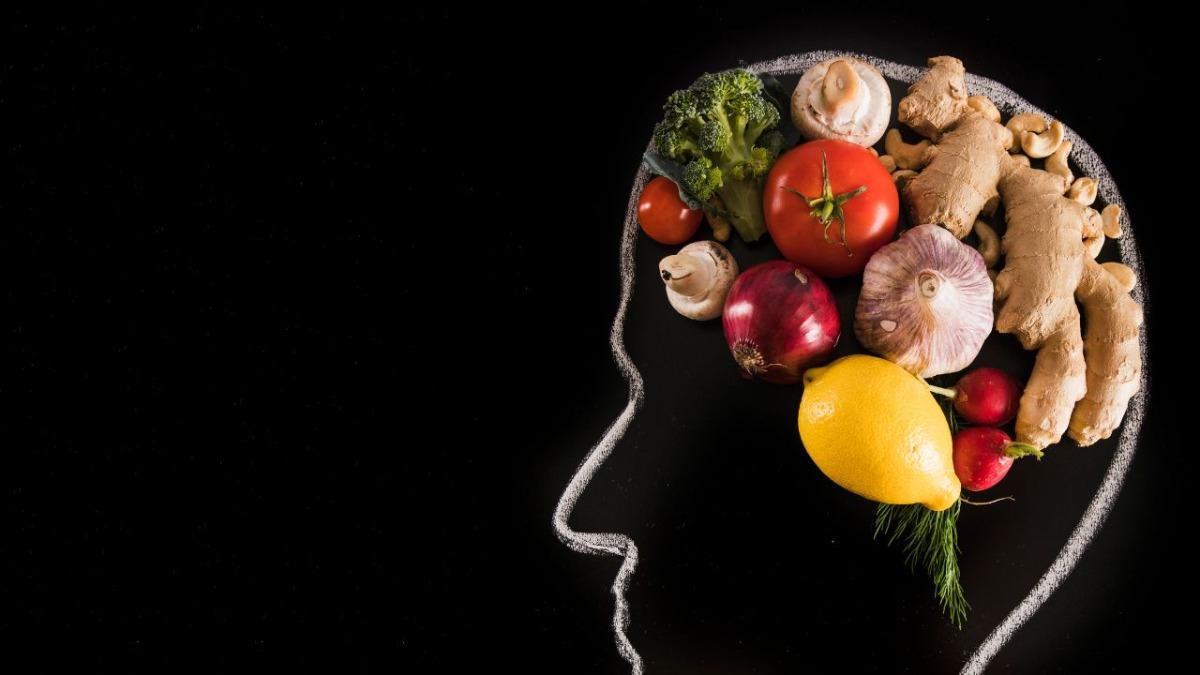
At Kidsville Pediatrics McKinney, we know that as parents, you're committed to helping your children reach their full potential, both in school and in life. A critical part of that success is ensuring they maintain good health, which is directly linked to their ability to absorb, retain, and apply the information they learn. The brain foods your children eat play a significant role in their mental and overall health, and by incorporating specific brain-boosting foods into their diet, you can support their performance, especially during challenging academic times.
Why Brain Health Matters for Children and Teens
The brain is the command center of your child’s body, controlling everything from emotions and learning to memory and concentration. Proper nutrition is essential to keep this organ in peak condition, particularly when your children face academic pressures. By including foods that specifically nourish the brain, you can enhance their focus, memory, and problem-solving abilities, giving them the tools they need to excel in school.
Here are the top five brain foods that can help improve your child’s mental performance:
1. Berries: A Sweet Boost for Young Minds
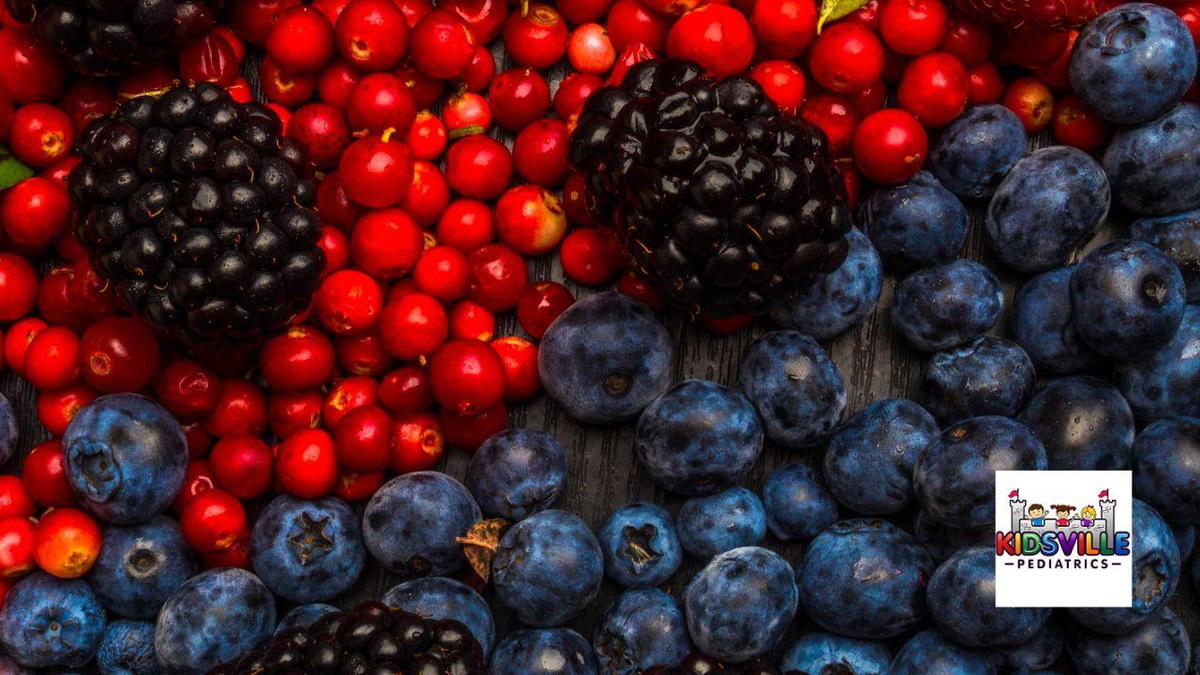
Berries, such as blueberries, strawberries, and blackberries, are not just delicious but are packed with nutrients that support brain health. These fruits contain anthocyanins, powerful antioxidants that help protect the brain by reducing inflammation and improving blood flow. For your child, these benefits can translate to enhanced memory, quicker thinking, and improved performance on cognitive tasks.
Studies have shown that berries can significantly impact brain function. In one study, children who consumed a berry-rich smoothie performed better on memory and attention tests. Another study found that regular consumption of blueberries improved memory and cognitive function in children. Including berries in your child's diet, whether in smoothies, cereals, or as a snack, can be a tasty way to support their academic success.
2. Citrus Fruits: Tangy Treats for Cognitive Clarity
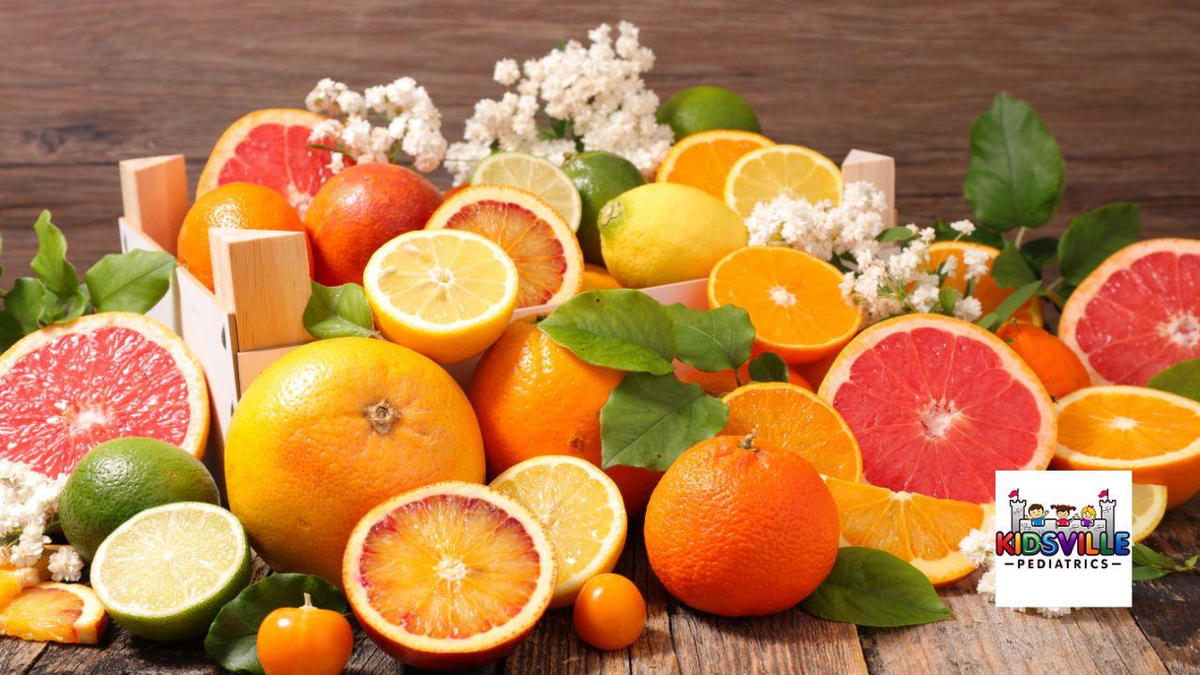
Citrus fruits like oranges, grapefruits, and lemons are excellent brain foods because they are sources of flavonoids, which have been linked to improved cognitive function and memory. These fruits are rich in nutrients like vitamin C, which plays a crucial role in protecting the brain from oxidative stress.
Research supports the brain-boosting effects of citrus fruits. One study found that children who consumed citrus juice showed improved cognitive performance and increased blood flow to the brain. Another study involving older children revealed that regular consumption of citrus fruits was associated with better memory retention. By incorporating citrus fruits into your child’s meals or snacks, you can help enhance their mental clarity and academic performance.
3. Dark Chocolate and Cocoa Products: Indulge Your Child’s Brain
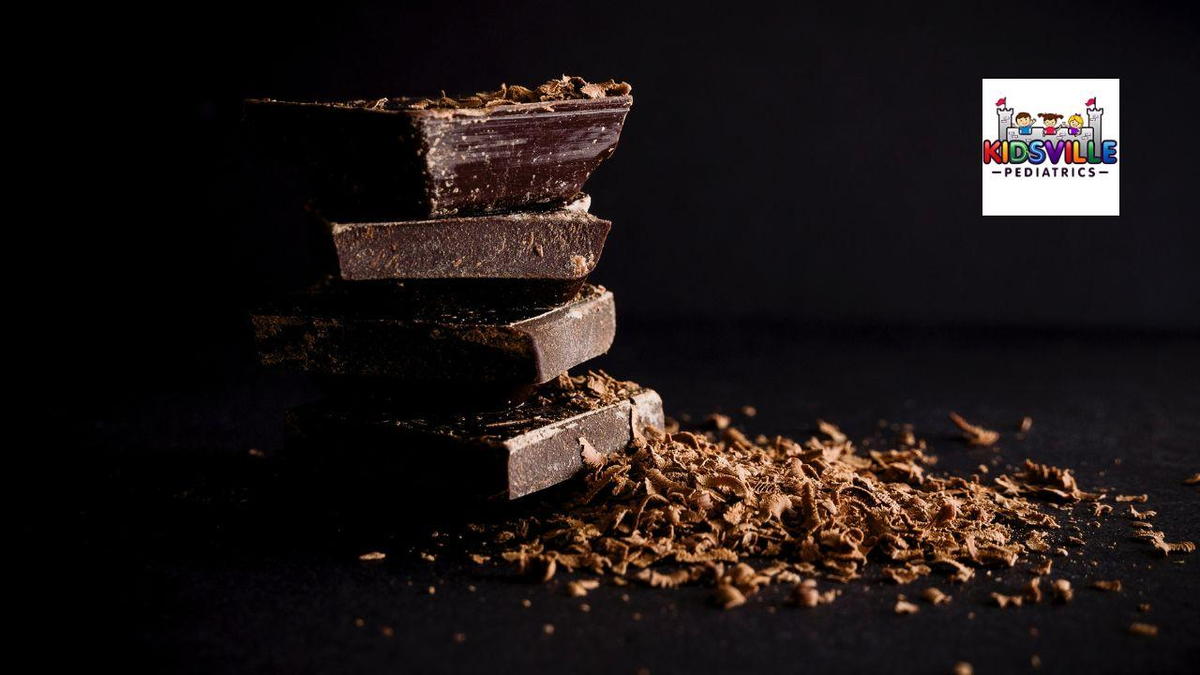
You might be surprised to learn that dark chocolate and cocoa products can benefit your child’s brain. These treats are rich in flavonoids, which have been shown to improve brain function by enhancing blood flow to the brain and increasing cognitive performance.
Research has demonstrated that consuming dark chocolate or cocoa products can improve memory and reduce mental fatigue. For instance, a study involving school-aged children found that those who consumed a flavonoid-rich cocoa beverage performed better on cognitive tests than those who did not. The flavonoids in dark chocolate can cross the blood-brain barrier, directly influencing areas of the brain responsible for memory and attention. So, when your child craves a snack, a piece of dark chocolate can be a sweet and healthy choice.
4. Nuts: Crunchy Powerhouses for Brain Health
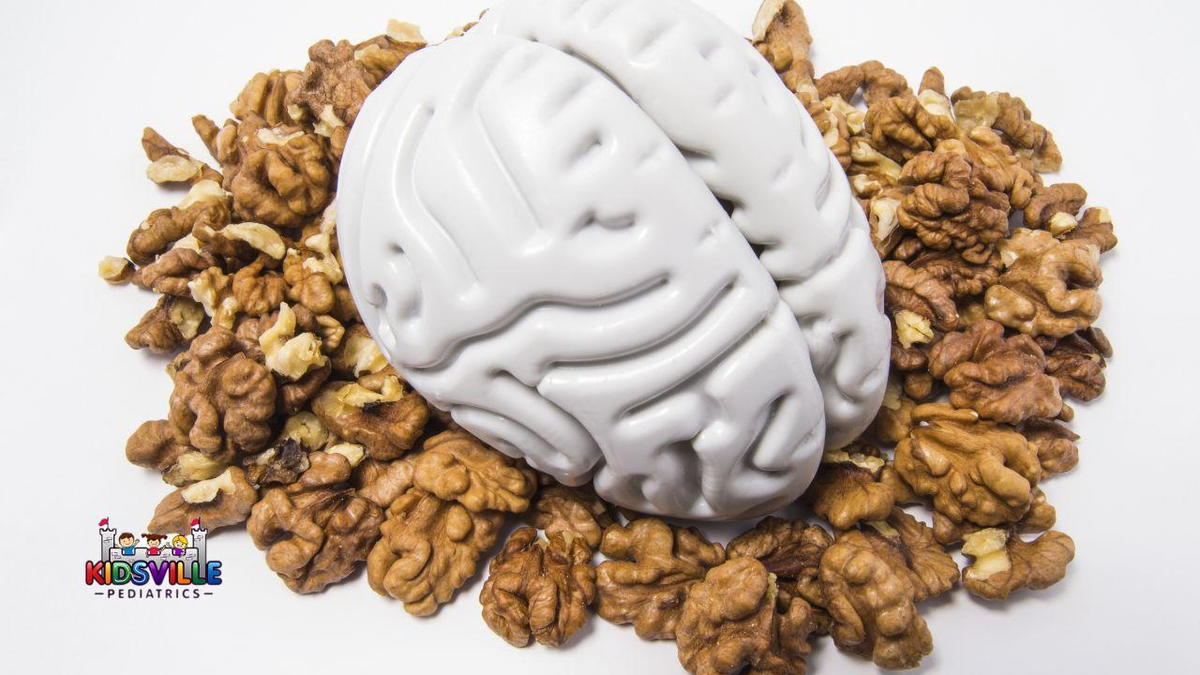
Nuts, such as almonds, walnuts, and cashews, are effective brain foods because they are packed with essential nutrients that support brain health. They are rich in vitamin E, zinc, and healthy fats, all of which are important for cognitive function. Nuts are also portable and easy to include in your child’s diet, whether in lunchboxes or as an after-school snack.
Research has shown that nuts can significantly improve brain function. For example, a study involving school-aged children found that those who consumed nuts regularly had better verbal reasoning and cognitive performance. Another study revealed that children who ate nuts had faster reaction times and performed better on memory tests. Including a handful of nuts in your child’s daily diet can help keep their brain sharp and ready for academic challenges.
5. Eggs: Nature’s Multivitamin for Growing Brains
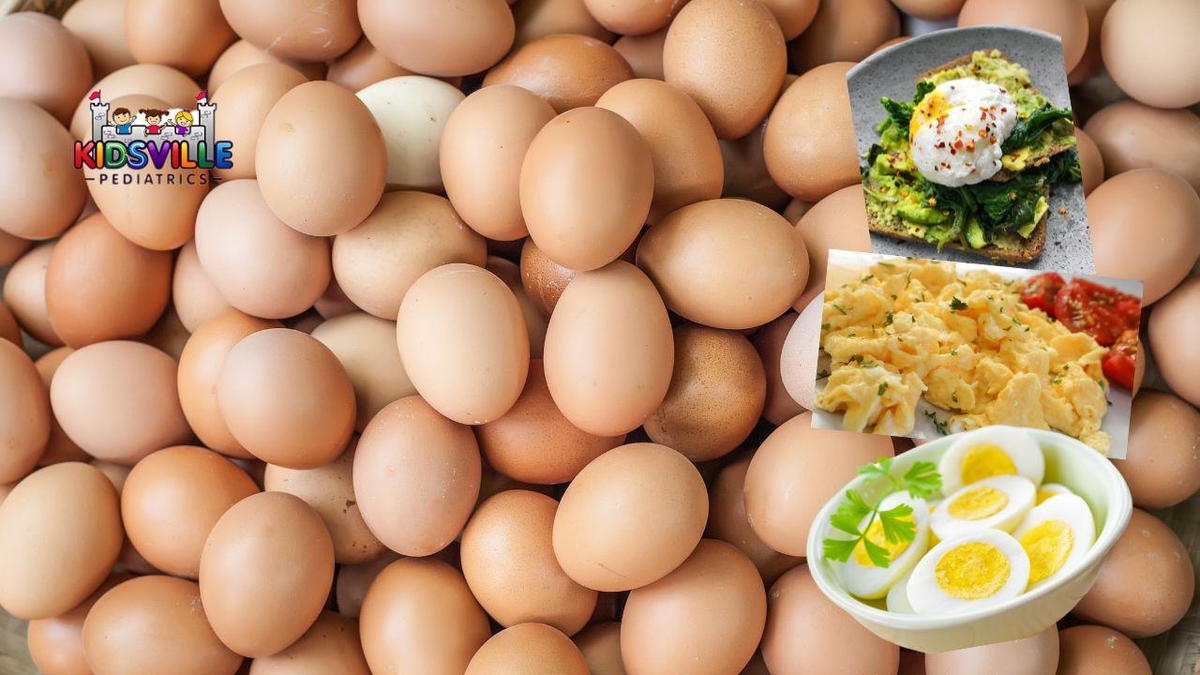
Eggs are often referred to as nature’s multivitamin because they contain a wide range of nutrients essential for brain health. They are particularly rich in vitamin B12, choline, and selenium, which play critical roles in memory, cognition, and overall brain function.
Choline, found in egg yolks, is necessary for brain development and the production of acetylcholine, a neurotransmitter involved in memory and learning. Selenium supports coordination, memory, and cognitive function, while vitamin B12 is vital for neurological health. Studies have shown that children who regularly consume eggs have better memory and cognitive performance. By making eggs a regular part of your child’s breakfast or lunch, you can provide them with the nutrients they need to succeed academically.
How to Incorporate Brain Foods into Your Child’s Diet
Now that you know which foods can help boost your child’s brainpower, the next step is to incorporate them into their daily diet. Here are some practical tips for ensuring your children get the most out of these brain-boosting foods:
Breakfast: Start the day with a nutrient-rich breakfast that includes eggs and berries. Scrambled eggs with a side of blueberries or a smoothie made with mixed berries can provide the energy and nutrients needed to fuel their brain for the day ahead.
Lunch: Pack a lunch that includes a variety of brain-boosting foods. Watch the YouTube video, above, especially prepared by our team of pediatrician Mckinney experts. A sandwich made with whole-grain bread, filled with lean protein and avocado, paired with a citrus fruit, can offer a balanced meal that supports cognitive function.
Snacks: Keep healthy snacks on hand, such as nuts, dark chocolate, and slices of citrus fruits. These snacks are not only delicious but also packed with nutrients that can keep your child’s brain sharp throughout the day.
Dinner: Include brain-boosting foods in your family dinners. For example, a salad with spinach, topped with nuts and a citrus vinaigrette, can be a great way to incorporate these foods into your child’s diet.
Hydration: Don’t forget the importance of staying hydrated. Encourage your child to drink water throughout the day, as dehydration can negatively impact cognitive function. Adding a splash of lemon or lime to their water can make it more appealing while also providing additional nutrients.
Encourage Healthy Eating Habits in Children and Teens

Getting children and teenagers to eat healthy can sometimes be a challenge, especially when faced with the allure of junk food and sugary snacks. Here are some strategies to encourage healthy eating habits that will support their brain health:
Lead by Example: Children often model their eating habits after their parents. By eating a variety of brain-boosting foods yourself, you can set a positive example for your children.
Involve Your Children in Meal Preparation: When children help prepare meals, they are more likely to eat what they’ve made. Involve them in choosing and preparing brain-boosting foods, and they’ll be more excited to try them.
Make Healthy Foods Fun: Present healthy foods in a fun and appealing way. For example, create a colorful fruit salad with berries and citrus fruits, or make fun shapes with slices of fruits and vegetables.
Set Regular Meal and Snack Times: Having a routine can help ensure that your child is eating balanced meals and snacks throughout the day, providing a steady supply of nutrients to support their brain function.
Limit Sugary and Processed Foods: While it’s okay to enjoy treats occasionally, McKinney pediatricians say that it’s important to limit the consumption of sugary and processed foods that can negatively impact brain health. Encourage healthier alternatives, like dark chocolate or homemade snacks, to satisfy cravings without compromising cognitive function.
Pediatrician Near Me
At Kidsville Pediatrics McKinney, we believe that good nutrition is the foundation of academic success. By incorporating brain-boosting foods into your child’s diet, you can help them improve their focus, memory, and overall cognitive function. Whether your child is in elementary school or high school, the foods they eat play a crucial role in their ability to learn and perform well academically.
Remember, a healthy diet is just one part of supporting your child’s academic success. Ensuring they get enough sleep, regular physical activity, mental breaks, and a regular visit to their McKinney doctor, are also essential for their overall well-being. By fostering healthy habits at home, you can give your child the tools they need to thrive both in and out of the classroom.
Encourage your child to embrace these brain foods as part of their daily routine, and watch as their academic performance soar. With the right support from home, they can achieve their educational goals and reach their full potential.
You may schedule an appointment online: https://www.kidsvillepeds.com/appointment/ Or visit/call our clinics: Kidsville Pediatrics Mansfield TX: 682-341-3910; 1759 Broad Park Circle S, Suite 201 & 205, Mansfield, TX Kidsville Pediatrics Southlake: 682-345-8010; 2813 W. Southlake Blvd Suite 100 Southlake, TX Kidsville Pediatrics McKinney: 469-885-9400; 5881 Virginia Pkwy. Suite 300 Mckinney, TX |
